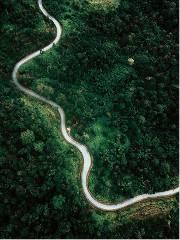
GeoTEd
vsgc.odu.edu/geoted-uas/
Geospatial Technology (GST) is a rapidly expanding industry that crosscuts nearly every discipline and sector of the U.S. economy. Geospatial technology is a broad term referring to geographical information systems (GIS), global positioning systems (GPS), and remote sensing (RS), and emerging technologies and applications that support the collection, analysis, and interpretation of spatial data. The U.S. Department of Labor (DOL) identified GST as one of 14 industries being transformed by new technology and requiring new skills sets for workers in 2004. The DOL Initiative states that the tremendous growth potential of GST is limited only by the educational system's ability to provide future workers. The VCCS Geospatial portal, also known as GeoTed, serves to facilitate the efforts of Virginia's Community Colleges through the development of a future workforce to meet industry demands for trained GST technicians. Virginia's vibrant geospatial industry mirrors national trends, and continues to experience growth and demand for geospatial technicians, despite the downturn in the economy. The VCCS is very well poised to help develop a geospatial literate workforce across the commonwealth. The VCCS Geospatial Portal supports the efforts of VCCS member colleges by: providing a calendar of geospatial events and activities across the state, developing and promoting geospatial career awareness efforts and related opportunities; enhancing the precollege geospatial pipeline; and facilitating collaboration among VCCS faculty by supporting the sharing of geospatial curricula and other educational resources.







